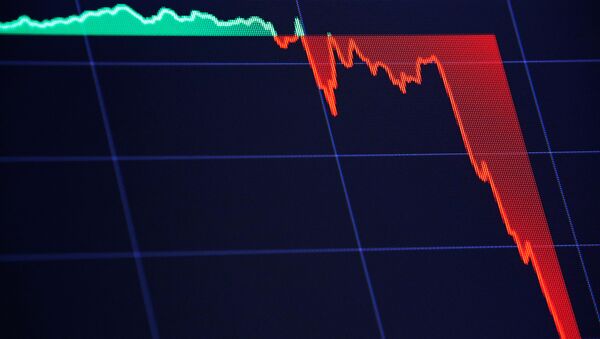Sushil Modi, the deputy chief minister of Bihar state and its finance minister, blamed the rainy months of "Saawan-Bhadon" (as per the Hindu calendar) for the ills of the Indian economy which witnessed 5% growth rate (April-June), leaving a lot of social media users in splits.
He said the opposition parties were needlessly creating panic about India's current economic situation:
"The Central government's announcement of a 32-point relief package and the merger of 10 banks will increase the lending capacity of banks whose effects will be visible in the next trimester. Normally each year there is a cyclic slowdown in the economy during 'Saawan-Bhado' [the fifth and sixth months of the Hindu calendar], but this time some political parties are creating noise over it to vent their frustration after their losses in the elections", Modi's tweet read.
केंद्र सरकार ने अर्थव्यवस्था में तेजी लाने के लिए 32 सूत्री राहत पैकेज की घोषणा और 10 छोटे बैंकों के विलय की पहल से लेंडिंग कैपिसिटी बढ़ाने जैसे जो चौतरफा उपाय किये हैं, उनका असर अगली तिमाही में महसूस किया जाएगा।
— Sushil Kumar Modi (@SushilModi) 1 September 2019
वैसे तो हर साल सावन-भादो में मंदी रहती है, लेकिन इस बार....... pic.twitter.com/6pu1xkqzWP
Some users trolled the minister, jokingly saying that he deserved a Nobel Prize in Economics for his analysis of the situation.
Wow what a comment sir ji. Some one nominate him for IMF president.
— Rishabh (@Rishabh39288221) 1 September 2019
This year’s Nobel Prize in Economics should go to Mr. Sushil Modi for this brilliant analysis.
— AAM Economist💐 (@_IamAamAadmi) 2 September 2019
Really to which stupidity we Indians have reduced to, what message we are sending to the world that how stupid people are ruling our country. This has become normal in India that whether it's PM or cabinet minister or CM, he say stupid things & get away it & supported by media
— Shivam (@ShivamJ24) 2 September 2019
So a new star, an expert economist is born! Needs to be shortlisted for this year's Nobel prize
— NN Ojha (@nnojha) 2 September 2019
Amid quarterly growth rates falling to 5 per cent from over 8 per cent a year ago, several opposition parties have blamed the ruling Bharatiya Janata Party (BJP) for being ineffective in controlling the dip in country's various economic sectors.
To deal with the economic crisis, Indian Finance Minister Nirmala Sitharaman recently announced a series of economic reforms, along with the biggest bank merger in the country's history by bringing together ten state-owned banks to create a financial behemoth. India will now have only 12 state-owned banks compared to 27 last year.
Additionally, the ministry also rolled back the additional surcharge on foreign portfolio investors (FPIs) and domestic investors last month, which it had introduced at the Union Budget in July.


